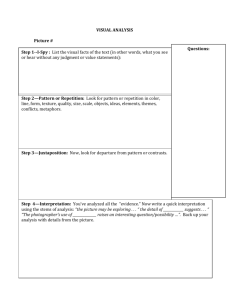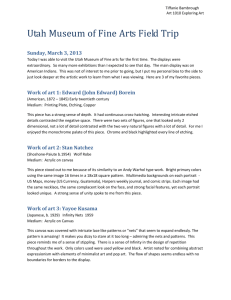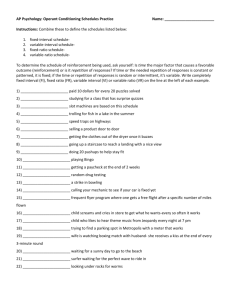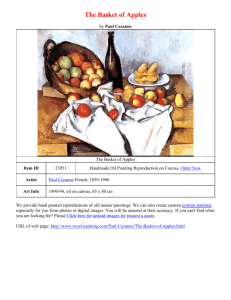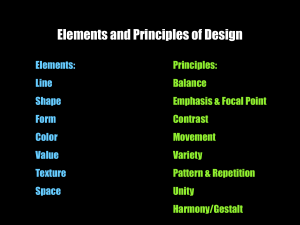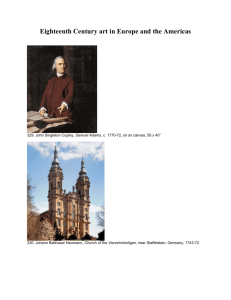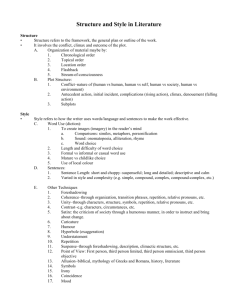balance
advertisement
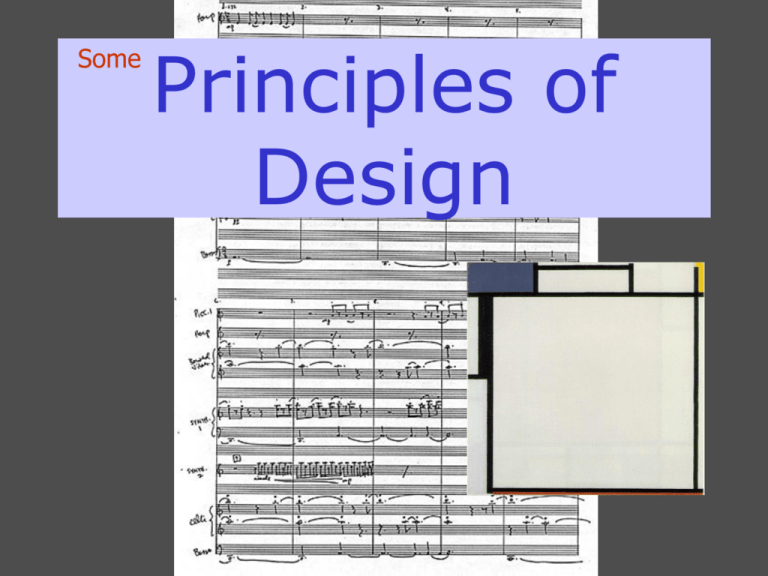
Some Principles of Design Some PRINCIPLES OF DESIGN REPETITION VARIATION CONTRAST BALANCE – symmetry/asymmetry EMPHASIS - accent ECONOMY PROPORTION SCALE Repetition in Art Creates visual rhythm |_ |_ |_ |_ |_ |_ |_ |_ |_ |_ |_ |_ |_ |_ |_ |_ |_ |_ |_ /////////////////////////////// |_ |_ |_ |_ |_ |_ |_ |_ |_ |_ |_ |_ |_ |_ |_ |_ |_ |_ |_ |_ |_ |_ |_ |_ |_ |_ |_ |_ |_ |_ |_ |_ |_ |_ |_ |_ |_ |_ \\\\\\\\\\\\\\\\\\\\\\\\\ |_ |_ |_ |_ \\\\\\\ |_ |_ |_ |_ |_ |_ |_ |_ |_ |_ |_ |_ |_ |_ |_ |_ |_ |_ |_ |_ |_ |_ |_ |_ |_ |_ |_ |_ |_ |_ |_ |_ |_ |_ >>>>>>>>>>>>>>> |_ |_ |_ |_ |_ |_ |_ |_ |_ |_and |_ |_ patterns |_ |_ |_ |_ |_ |_ |_ |_ |_ |_ |_ |_ |_ |_ |_ |_ |_ |_ |_ |_ |_ |_ |_ |_ |_ |_ <<< <<< |_ <<< |_ |_<<< |_ |_<<< |_ |_ |_ |_ |_ |_ |_ |_ |_ |_ |_ |_ |_ |_ |_ |_ |_ |_ |_ |_ |_ |_ |_ |_XXXXXXXX |_ |_ |_ |_ |_ |_ |_ |_ |_ O OO OO OOO |_ |_ |_OO |_ |_OO |_ |_O|_ |_ |_ |_ |_ |_ |_ |_ |_ |_ |_ |_ |_ |_ |_ |_ |_ |_ |_ |_ |_ |_XXXXXXXX |_ |_ |_ |_ |_ |_ |_ |_ |_ |_ |_ |_ |_ |_ |_ |_ |_ |_ |_XXXXXXXX |_ |_ |_ |_ |_ |_ |_ |_ |_ |_ |_ |_ |_ |_ |_ |_ |_ |_ |_ |_ |_ |_ |_ |_ |_ |_ |_ |_ |_ |_ |_ |_ |_ |_ |_ |_ |_ |_ |_ |_ |_ |_ |_ |_ |_ |_ |_ Rhyme in poetry The world is too much with us; late and soon, Getting and spending, we lay waste our powers; Little we see in Nature that is ours; We have given our hearts away, a sordid boon! This Sea that bares her bosom to the moon, The winds that will be howling at all hours, And are up-gathered now like sleeping flowers, For this, for everything, we are out of tune; It moves us not.--Great God! I'd rather be A Pagan suckled in a creed outworn; So might I, standing on this pleasant lea, Have glimpses that would make me less forlorn; Have sight of Proteus rising from the sea; Or hear old Triton blow his wreathed horn. William Wordsworth, “The World Is Too Much with Us” (1807) Alliteration & assonance in poetry TO THE STONE-CUTTERS Stone-cutters fighting time with marble, you foredefeated Challengers of oblivion Eat cynical earnings, knowing rock splits, records fall down, The square-limbed Roman letters Scale in the thaws, wear in the rain. The poet as well Builds his monument mockingly; For man will be blotted out, the blithe earth die, the brave sun Die blind and blacken to the heart: Yet stones have stood for a thousand years, and pained thoughts found The honey of peace in old poems. Robinson Jeffers, 1924 Andy Warhol, Orange Disaster No. 5, 1963 Eadweard Muybridge, photographer Some repetition in music PHILIP GLASS EINSTEIN ON THE BEACH (an opera) Monet Poplars . . . Monet Poplars . . . Monet Poplars . . . Charles Demuth, The Figure 5 in Gold, 1928 Cimabue, Madonna Enthroned, 1280-90 TEXTBOOK p. 185 VARIATION: the alliance between repetition and surprise The extensive poem, moreover, satisfies another two-fold requirement, one that is closely related to the rule of variety within unity: repetition and surprise. Repetition is a cardinal principal in poetry. Meter and its accents, rhyme, the epithets in Homer and other poets, phrases and incidents that recur like musical motifs and serve as signs to emphasize continuity. At the other extreme are breaks, changes, inventions - in a word, the unexpected. What we call development is merely the alliance between repetition and surprise, recurrence and invention, continuity and interruption. Octavio Paz, “Telling and Singing” in The Other Voice The Four Evangelists, from the Gospel Book of Charlemagne, early 9th century TEXTBOOK p. 135 dancers CAILLEBOTTE, Gustave Paris: A Rainy D ay, 1877, Oil on canvas, 83 1/2 x 108 3/4" CONTRAST Martin Munkacsi Black Boys on the Shore of Lake Tanganyika (1931) photograph Night Attack on the Sanjo Palace (detail) Japan, Kamakura period, second half of the 13th Century Handscroll; ink and color on paper 16 1/4 x 275 1/2 in. David Hockney, Portrait of an Artist (Pool with Two Figures), 1971 Contrasts & Oppositions in Hockney’s Portrait of an Artist • Diagonal/horizontal • Straight/curved lines • Air/water/Earth fire? • Natural/artificial • Clothed/(nearly) naked • Tint/shade (light/shadow) • colors What is the psychological relationship between the two men? Which of them is the “artist” in the title? Is it two sides of one person, the “artist”? Degas Waiting Contrasts in Degas’s Waiting (1882, pastel) WHITE – BLACK COLOR – NO COLOR OPEN – CLOSED YOUNG – OLD PERFORMER – SUPPORTER BUSY – EMPTY INWARD GAZE – OUTWARD GAZE organizational contrast – TWO GIRLS FISHING just variation? John Singer Sargent, 1912 (American, b.1856, d.1925) 22 x 28 1/4 in. (55.9 x 71.8 cm) organizational contrast A and Not A EMOTIONAL CONTRAST A A A A A in tension with Not A in conflict and struggle with Not A completed by Not A united with Not A in harmony with Not A Broad, plain areas contrast with tangle of fingers Rogier van der Weyden Netherlandish, 1399/1400 - 1464 Portrait of a Lady, c. 1460 oil on panel, painted surface: 34 x 25.5 cm (13 3/8 x 10 1/16 in.) panel: 37 x 27 cm (14 1/16 x 10 5/8 in.) Winslow Homer American, 1836 - 1910 Right and Left, 1909 oil on canvas, 71.8 x 122.9 cm (28 1/4 x 48 3/8 in.) White-on-white, but what animal nature lurks? James McNeill Whistler American, 1834 - 1903 Symphony in White, No. 1: The White Girl 1862 oil on canvas, 213 x 107.9 cm (83 7/8 x 42 1/2 in.) Appropriate clothes? John Singer Sargent American, 1856 - 1925 Nonchaloir (Repose), 1911 oil on canvas, 63.8 x 76.2 cm (25 1/8 x 30 in.) Gilbert Stuart American, 1755 - 1828 The Skater (Portrait of William Grant), 1782 oil on canvas, 245.5 x 147.4 cm (96 1/4 x 58 in.) Stately, stable figure – on skates! BALANCE symmetry EQUILIBRIUM TEXTBOOK p. 192 Leonardo da Vinci, Proportions of the Human Figure (“Vitruvian Man”) Shiva, bronze temple sculpture, Chola Era (9th-13th C.), South India Durer Dancing Peasants 1514 Master of the Saint Lucy Legend Bruges, active c. 1480 - c. 1510 Mary, Queen of Heaven, c. 1485/1500 oil on panel, painted surface: 199.2 x 161.8 cm (78 7/16 x 63 3/4 in.) Frida Kahlo, The Two Fridas, 1939 Alfred Sisley, The Chemin de By through Woods at RochesCourtaut, St. Martin's Summer, 1880 Assymetical balance? Assymetical balance? H. H. Richardson 1880-1883 Crane Memorial Public Library Quincy, Massachusetts Assymetical balance in music? A concerto sets a soloist or small group of soloists “against” an orchestra EMPHASIS accent David Hockney, Portrait of an Artist (Pool with Two Figures), 1971 not a good example of EMPHASIS Andy Warhol, Orange Disaster No. 5, 1963 ECONOMY limitation of a composition to a few essential elements; usually a voluntary constraint that is part of the creative process SPECIFIC TO AN INDIVIDUAL WORK, NOT THE GENRE , TYPE OR MEDIUM Examples in music: deriving everything from a single theme (musical idea), limiting the number of pitches, type of instrument, etc. Steve Reich, Music for Pieces of Wood, Clapping Music, or other pieces DC Meckler, Bliss (1999) Morton Feldman, Three Voices (1982) ECONOMY – very little suggests a lot Picasso, Femme Picasso, Guernica, 1937 p. 410 PROPORTION PROPORTION PROPORTION Leonardo: The Last Supper, 1498 Diego Rivera, The Flower Carrier, 1935, 48x48 in. Joseph Mallord William Turner British, 1775–1851. Slave Ship (Slavers Throwing Overboard the Dead and Dying, Typhoon Coming On), 1840 Shahn, Ben, Vacant Lot, 1939 Watercolor and gouache on paper mounted on plywood panel, 19 x 23 in Carlo Crivelli Venetian, c. 1430/1435 - 1495 Madonna and Child Enthroned with Donor, 1470 tempera on panel, painted surface: 125.3 x 50.7 cm (49 5/16 x 19 15/16 in.) including unpainted margins: 129.5 x 54.4 cm (51 x 21 7/16 in.) donor Proportion in music A matter of time, usually lots of time. Example: 3 Beethoven string quartets (Op 59, 1, 2 & 3). Each in 4 movements. No. 1 – BIG 1st mvt No. 2 – nervous 1st mvt, BIG 2nd mvt No. 3 – BIG finale (4th mvt) SCALE SCALE - the size of a work compared to the environment: miniature, human, monumental. The term can also apply to musical works, although it has an entirely different meaning than “musical scale.” (“A symphony is a large-scale musical work when compared to a song.”) Claes Oldenburg, Knife Ship I, 1985 Vinyl-covered wood, steel, and aluminum with motors, dimensions variable, maximum height 31 feet 8 inches x 40 feet 5 inches x 31 feet 6 inches. Miniature Leaf from Futuh al-Haramain (Description of the Two Holy Cities of Mecca and Medina), mid-16th century; Ottoman, 8x5 in. a bit bigger . . . Some examples of time scales in music Less than a minute - Miniatures – Chopin, Webern, Schoenberg Pop songs – 3-6 minutes Early symphonies – 25-35 minutes Later symphonies – 45 min - 1 hr Longest – Mahler – 1 ½ hrs Short opera – 2 hours Average opera – 3-4 hours (including intermissions) Long opera – 5 hours Longest traditional opera – Wagner’s RING – 18 hours Robert Motherwell, Elegy for the Spanish Revolution No. 34, 1953-54 Georgia O’Keefe on scale & flowers: Nobody sees a flower—really—it is so small—we haven’t time—and to see it takes time, like to have a friend takes time. . . . So I said to myself—I’ll paint what I see—what the flower is to me—but I’ll paint it big. . . . I will make even busy New Yorkers take time to see what I see of flowers. Geogia O'Keeffe American, 1887–1986, White Rose with Larkspur, No. 2, 1927, Oil on canvas; 40 x 30 in. Geogia O'Keeffe Jimson Weed 70x84 in Scale has to do with the size of the work itself Some PRINCIPLES OF DESIGN REPETITION VARIATION CONTRAST BALANCE – symmetry/asymmetry EMPHASIS - accent ECONOMY PROPORTION SCALE George Bellows American, 1882 - 1925 Both Members of This Club, 1909 oil on canvas, 115 x 160.5 cm (45 1/4 x 63 1/8 in.)
